For more than four decades British journalist, musician, filmmaker and professor, Vivien Goldman, has been front and centre in the world of punk music. Now living in Jamaica and nearing her 70s, Vivien is showing no signs of stopping!
Defining the rise of punk can be a colourful conversation. Punk has always been a platform for those drawn to its strong sense of self-expression, to stand up and be heard. But not many have collected the wisdom’s and gained such insight into the rise of punk as author of Revenge Of The She-Punks, music writer Vivien Goldman.
Vivien’s path has led her to many amazing roles which include being a music journalist, author, publicist, singer, and producer. As a result, she has been deservedly honoured as an adjunct Professor of Punk by New York University where she lectures about reggae and punk.
Vivien’s punk pedigree can’t be argued with. As well as interviewing just about every UK punk band known in the mid ’70’s for music papers such as Sounds and the NME, she shared a flat with The Pretenders singer Chrissie Hynde and was also a member of the English post-punk bands The Flying Lizards, which had the hit song Money.
Vivien moved to Paris in 1981, after deciding to become a musician rather than writing about them. She formed the new wave duo Chantage, which became well-known in France and released an EP, Dirty Washing, in 1981 which was produced by John Lydon.
Vivien’s punk pedigree can’t be argued. As well as interviewing just about every UK punk band known in the mid ’70s for music papers such as Sounds and the NME, she shared a flat with The Pretenders singer Chrissie Hynde.
Recalling that period of her life she says “I learned to write songs and sing in a studio. I love writing; it’s torture but it’s great.”
Now living in Jamaica and nearing her 70s, Vivien is showing no signs of stopping as she reflects on her very punk career.
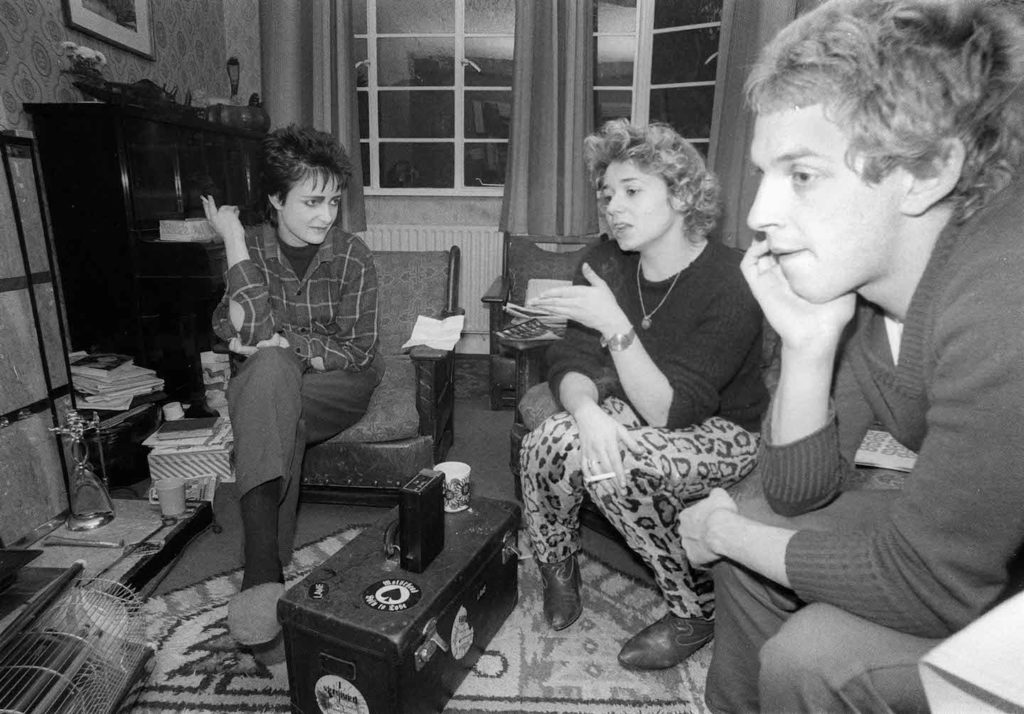
“I want to keep on producing,” Vivien says enthusiastically. “There are a lot of things I want to communicate and get out there.”
Early in her career Vivien worked as a PR officer for Atlantic and Island Records working with Nigerian musician and Human Rights Activist Fela Kuti and Jamaican Reggae legend Bob Marley, which according to Vivien was very life-changing.
“I was just starting out and it set a very high bar for my life,” she reflects. “There was an incredible sense of mission from both of them that gave every day a sense of purpose and mission. I learned to try to not be afraid of death from them.”
Her first job however wasn’t quite so inspiring. Vivien remembers that at that time the attitude towards women in the working environment was very different from what it is today.
“I applied for a job at this magazine called Cassettes and Cartridges and that was it… I was a music journalist.There was no one really writing the magazine, so I ended up doing the whole thing myself.”
However one day they hired a new male editor and he fired her. “He said he only wanted the girl on the staff to be somebody who made the tea,” she scoffs. ” Anyway, I moved on to Sounds magazine and this guy eventually got the sack too and ends up asking for freelance work…” You won’t be surprised to hear, he didn’t get any work – not from Vivien at least!

Looking back on her life, Vivien relishes the great privilege it was to be at the forefront of the rising punk movement and the historical importance the She-Punk influence had on the world.
“What a blessing, what a stroke of luck. I experienced life before punk and it was a drag. I was writing about jazz and so on and it became so much more exciting and so much more inclusionary when punk started. There was no comparison.”
It was that feeling of inclusiveness that stuck with her. “With the punk evolution there wasn’t that false wall between the writers and the artist. It was inclusive. Whether we were women or men we managed to carve out a little bit of space in the punk era against all odds.”
“I experienced life before punk and it was a drag. I was writing about jazz and so on and it became so much more exciting and so much more inclusionary when punk started. There was no comparison.” Vivien Goldman
Tweet
Seizing punk as a powerful outlet, women embodied 100% control over their individuality. The freedom of not having to conform to a world you felt you didn’t fit into was empowering.
“I think what was great was these women artists were coming up and all of a sudden I wasn’t alone,” she recalls. “It was like a wave carrying me out, having people like The Slits, The Raincoats and Delta 5 – other like-minded women, doing the music they wanted to, which was really unprecedented in popular music history”.
Punk isn’t an image or a particular sound. Punk is an attitude. In Revenge of the She-Punks, Vivien conveys the sometimes devastating momentum behind the music. It was an incredibly powerful platform from which you could speak out about the things people try to sweep under the rug.
“There was a sense of truth and empowerment which drew you in that,” she says, “It can’t be overstated how the Women’s Rights movement in America led by writer and activist Gloria Steinem through the ’60s and ’70s was a huge benefit to women in punk. There were a lot of legal changes going on at the time. Women were able to be more autonomous.”
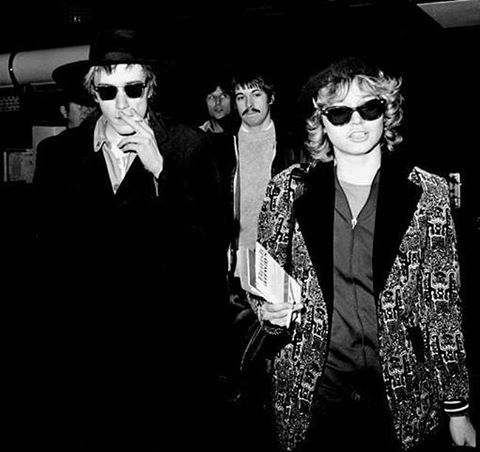
Vivien recalls Lesley Woods of the post-punk group Au Pairs — now a London barrister specialising in Immigration Law — who once reminded Vivien that “Before punk, a woman had no recourse if her husband was beating her. There was nothing in the law books protecting her. She couldn’t buy a house without a male signing for it. Things we consider basic rights were just beginning to shift at that moment”.
Vivien also believes social media has been a great step in finding freedom for women in the creative world “It was a facilitator for women,” she explains. “You didn’t need a man. You could move around, be more mobile, post at home in your bedroom. You could work out how to use it. You didn’t need to have some authority figure showing you how. You could be in control of the whole process.”
In many ways, the shifts in attitude that punk created is evident today. Albeit slowly, balance is creeping in with Vivien citing the Me Too Movement as an example and how it has “shaken things up considerably”, adding; “The patriarchy has been around for so long it’s not going to crumble overnight.” Her analogy, however, is inspiring. “Women are going to have to be like water. Just drip, drip, drip away and eventually, you can wear away mountains.”
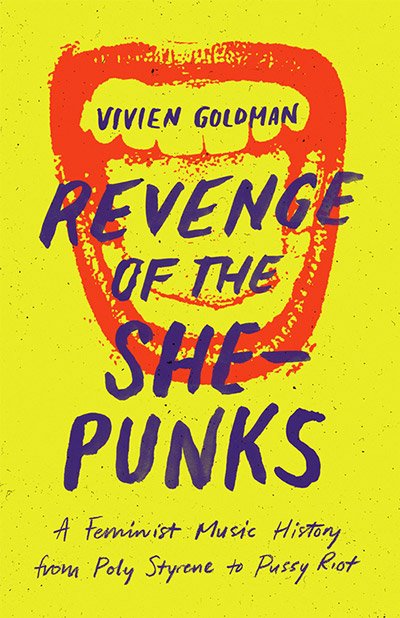
To delve more deeply into the depths of the punk movement and the wave of crucial change it has brought society as a whole, grab your copy of Revenge Of The She-Punks and for Vivien’s perspective of a wild ride of music, anarchy, chaos, freedom, and change.
Everyone should have a soundtrack playing loudly in the background of their life. I was born moshing to my own beat and have never swayed from my love of music. Spreading my passion through the written word is my soul’s purpose. My punk heart beats loudly with the rhythm of my rock soul. I plan to continue to mosh like no one gives a shit.
Click on Tracey’s photo for more of her articles!




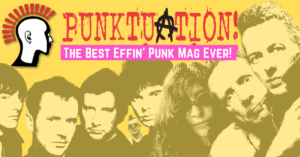 Did you know that we are 100% DIY? We run our own game. No one dictates to us, and no one drives what we can or cannot put on our pages – and this is how we plan to continue!
Did you know that we are 100% DIY? We run our own game. No one dictates to us, and no one drives what we can or cannot put on our pages – and this is how we plan to continue!